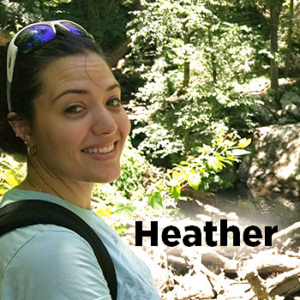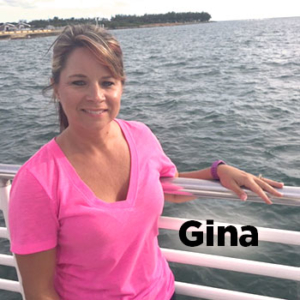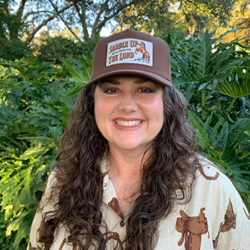“a cord of three strands is not easily broken.” – King Solomon, Ecclesiastes 4:12
 Investing in others is an important part of life, especially for our roles as financial advisors. The verse above summarizes this perfectly. I love the challenge of identifying and drawing out strengths in others. The ROI of investing in others is sometimes hard to measure… but proves invaluable.
Investing in others is an important part of life, especially for our roles as financial advisors. The verse above summarizes this perfectly. I love the challenge of identifying and drawing out strengths in others. The ROI of investing in others is sometimes hard to measure… but proves invaluable.
To help demonstrate this, I want to take a moment to recognize Heather and Gina — two of the Client Service Associates that I work with. Heather Newell has worked with me for five years. She is kind, trustworthy, and has an incredible work ethic; she has truly been a blessing to both me and the clients we serve. On top of that, it seems that  Heather is able to read my mind. Gina is not far behind. Gina Reynolds, the newest member of our team, shares many of the character traits that I admire in Heather. Growing up in Enterprise, AL, she has retained her Southern charm; she cares as much about others as her voice reflects. Prior to joining the Allen & Company family six years ago, she received her Accounting degree from Troy State University. Outside of work, Gina enjoys spending time with her family, reading, playing piano, and acting in theatre productions at the Lakeland Community Theatre.
Heather is able to read my mind. Gina is not far behind. Gina Reynolds, the newest member of our team, shares many of the character traits that I admire in Heather. Growing up in Enterprise, AL, she has retained her Southern charm; she cares as much about others as her voice reflects. Prior to joining the Allen & Company family six years ago, she received her Accounting degree from Troy State University. Outside of work, Gina enjoys spending time with her family, reading, playing piano, and acting in theatre productions at the Lakeland Community Theatre.
 The ROI of relationships
The ROI of relationships
Whether working with a colleague, coaching sports, counseling a friend, or advising a client — there is nothing more rewarding than helping others achieve their highest potential. We usually think about “return on investment” (also known as and shortened to ROI) in the context of financial investments, but ROI may also be considered in the context of relationships. When you think about relationships, you might first think of your immediate family and closest friends. But, what if we take it a step further and think about those you work with, you worship with, or who live right next door? Furthermore, what would it look like to invest in those who are less fortunate?
Approaching personal relationships with care
In his book Integrity, Dr. Henry Cloud talks about how we “leave a wake behind us” everywhere we go. As a result, we should be mindful of how our interactions with — and investments in — those around us may positively or negatively impact their lives. Most of us want to generate positive returns and protect our financial capital. However, we don’t always approach our relationships with the same care.
I picked up a book from Goodwill recently that spoke to this. (I’d credit the author, but our new dog chewed up the book!) One of its main messages was that our relationships tend to struggle most when we see others as objects to be used, rather than people who we should help and serve. There’s another good example of this in Dale Carnegie’s book How to Win Friends and Influence People. In this example, a woman relays her experience dining with the current and former British Prime Ministers. With the first Prime Minister, she elevated him as if he were the most important person in the world. However, the second Prime Minister elevated her and made her feel like the most important person in the world.
Elevating others: the most underrated skill in the world?
Some people, though, are afraid to do this. They mistakenly believe that if others become greater that they, in return, will become inferior. I believe the primary reason we don’t lift others up more often is because we are too focused on trying to build ourselves up. C.S. Lewis said that “humility is not thinking less of yourself but thinking of yourself less.” What if we started to approach others looking through this lens rather than our own?
There is so much joy to be found in elevating others, especially over long periods of time. The ROI of investing in others is the teamwork and joy that results… this is a joy that is often overlooked. At home, at the office, and in my extracurricular activities I am blessed to be surrounded by so many people who are worth investing in.
Now, I ask you: How valuable to you is your portfolio of people? What kind of “gains” have you seen over the years? If financial returns haven’t brought you the happiness you were hoping for, perhaps you have become too focused on the wrong “portfolio.” I think that all of us could benefit from investing more of our time and resources into others; the ROI of these investments can surpass those that can be found in facts and figures. Remember: the power of compound interest applies to more than just money.
October 2020

 The ROI of relationships
The ROI of relationships


